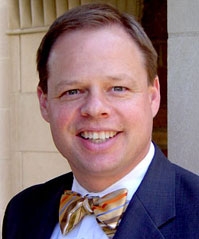 By Derek D. Alley, CFRE, Co-Founder of Arthur Alley Associated
By Derek D. Alley, CFRE, Co-Founder of Arthur Alley Associated
As the economy improves, it seems that more and more organizations are considering, or preparing to launch, a major fundraising campaign. The last thing any not-for-profit organization or campaign consulting firm wants is a failed campaign. Missing a publicly stated campaign goal can haunt an organization for years – fingers are pointed between Board members, staff and campaign counsel; the public may question management of the organization; and, worst of all, the mission may be hampered.
A robust feasibility study is crucial for campaign success. Creating a sound case for support and engaging prospective donors in frank discussion in a confidential setting will pave the way for moving forward with intention. You might ask, “But don’t large gifts pave the way to campaign success?” They certainly play a role! And bold questions asked during the campaign feasibility study process can lead to this positive outcome.
When preparing to assess campaign success, a sound case is crucial. Prospective contributors can be like horses: They can sniff out fear, hesitancy and lack of confidence a mile away. Therefore, the preliminary case must be well thought-out to thoroughly answer the important questions: Why this project? Why now at this time in the organization’s existence? Why do you think I, a prospective contributor, should be interested? In other words, you much do your homework and do it well.
Now, get your beautifully crafted case for support in front of the right people and have a real conversation. This is your opportunity to ask bold and thoughtful questions with the goal of engaging the hearts and minds of prospective campaign contributors. Have a list of questions to structure the discussion and get at the information you need. Be sure to ask their opinion of the case and the programs explained therein. Whatever you do, be bold and ask about their willingness to put their money where their mouth is…and try to be specific. Don’t talk in generalities. Share a proposed gift range chart. Oh, and don’t forget to ask them to assist by sharing the names of others who might be interested in the proposed project.
Remember, during the capital campaign feasibility study, you’re not just chatting with supporters and lining up possible volunteers. While you get a feel for the organization’s situation and base of support, you must gather vitally important data to determine whether or not the proposed campaign can be successful. Be bold!